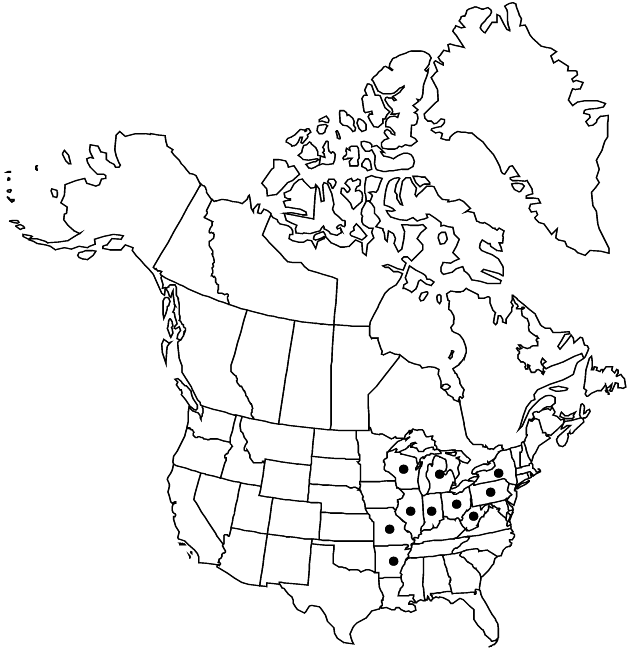Difference between revisions of "Liatris scariosa var. nieuwlandii"
Michigan Bot. 34: 139. 1996.
Endemic
Basionym: Lacinaria scariosa var. nieuwlandii Lunell Amer. Midl. Naturalist 2: 176. 1912 (as Laciniaria)
Synonyms: Liatris ×nieuwlandii (Lunell) Gaiser Liatris novae-angliae var. nieuwlandii (Lunell) Shinners
imported>Volume Importer |
imported>Volume Importer |
||
| Line 64: | Line 64: | ||
|publication year=1996 | |publication year=1996 | ||
|special status=Endemic | |special status=Endemic | ||
| − | |source xml=https:// | + | |source xml=https://bitbucket.org/aafc-mbb/fna-data-curation/src/2e0870ddd59836b60bcf96646a41e87ea5a5943a/coarse_grained_fna_xml/V19-20-21/V21_1355.xml |
|tribe=Asteraceae tribe Eupatorieae | |tribe=Asteraceae tribe Eupatorieae | ||
|genus=Liatris | |genus=Liatris | ||
Latest revision as of 20:09, 5 November 2020
Plants 30–100 cm. Stems with 20–85 leaves or leafy bracts proximal to heads. Leaves: basal and proximal cauline usually narrowly lanceolate-spatulate, sometimes broader, mostly 100–500 × 25–50(–55) mm, glabrous or hirtello-puberulent (gland-dotted). Heads usually 9–20. Florets 30–80.
Phenology: Flowering Aug–Sep(–Oct).
Habitat: Prairies, glades, open woods, bluff ledges, railroads, rocky limestone soils, red clays, jack pine, pine-oak, oak-juniper, oak-hickory, aspen
Elevation: 100–500 m
Distribution

Ark., Ill., Ind., Mich., Mo., N.Y., Ohio, Pa., W.Va., Wis.
Discussion
Plants of var. nieuwlandii are usually relatively tall and have relatively numerous, even-sized, densely arranged, lanceolate cauline leaves.
Selected References
None.
Lower Taxa
None.